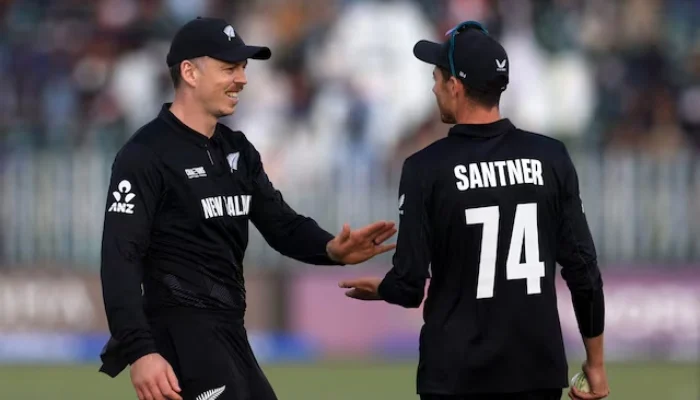Michael Bracewell will captain New Zealand’s T20 squad in a five-match series against Pakistan, starting March 16 in Christchurch. With many key players absent due to Indian Premier League (IPL) commitments, Bracewell leads a depleted squad but remains optimistic about the challenge ahead.
Missing Key Players
Regular captain Mitchell Santner, along with Devon Conway, Lockie Ferguson, and Glenn Phillips, will miss the series as they participate in the IPL. Kane Williamson also made himself unavailable. This leaves New Zealand with a relatively young squad as they start preparing for the 2026 T20 World Cup in India.
Despite these absences, the squad includes seven players from the recent Champions Trophy final. Bracewell, who previously captained New Zealand during their white-ball tour of Pakistan, will now lead the team on home soil for the first time.
Bracewell’s Leadership and Expectations
Bracewell expressed his excitement about captaining the side.
“It’s a great honor and a real privilege to captain your country. Mitch Santner has done a fantastic job, and I’ll be looking to build on his work while creating an enjoyable environment for the team.”
He acknowledged the strength of Pakistan’s T20 squad, highlighting their powerful batting lineup and fast bowlers. With Pakistan eager to bounce back after an early exit from the Champions Trophy, Bracewell expects a tough series.
Read: Inzamam Fires Back at Gavaskar Over ‘B Team’ Remark
Squad Composition and Key Inclusions
Spinner Ish Sodhi returns to the squad, while Ben Sears makes a comeback after recovering from a hamstring injury. The squad also includes experienced players like Finn Allen, Jimmy Neesham, and Tim Seifert, providing a mix of youth and experience.
New Zealand T20 Squad:
- Michael Bracewell (captain)
- Finn Allen
- Mark Chapman
- Jacob Duffy
- Zak Foulkes (games 4 and 5 only)
- Mitch Hay
- Matt Henry (games 4 and 5 only)
- Kyle Jamieson (games 1, 2, and 3 only)
- Daryl Mitchell
- Jimmy Neesham
- Will O’Rourke (games 1, 2, and 3 only)
- Tim Robinson
- Ben Sears
- Tim Seifert
- Ish Sodhi
T20I Series Schedule
- March 16 – First T20I in Christchurch
- March 18 – Second T20I in Dunedin
- March 21 – Third T20I in Auckland
- March 23 – Fourth T20I in Mount Maunganui
- March 26 – Fifth T20I in Wellington
Testing New Talent and Strategy
With a weakened squad, New Zealand will use this series to test emerging players and refine strategies. The absence of senior players allows younger members to gain valuable international experience.
For Pakistan, this series is an opportunity to rebuild confidence after their recent struggles. Known for their explosive T20 performances, they will be aiming for a strong comeback.
An Exciting Series Ahead
Despite missing key players, New Zealand remains a formidable opponent at home. The Pakistan series will be a crucial test for Bracewell’s leadership as both teams prepare for future international competitions.
Follow us on Google News, Instagram, YouTube, Facebook,Whats App, and TikTok for latest updates
